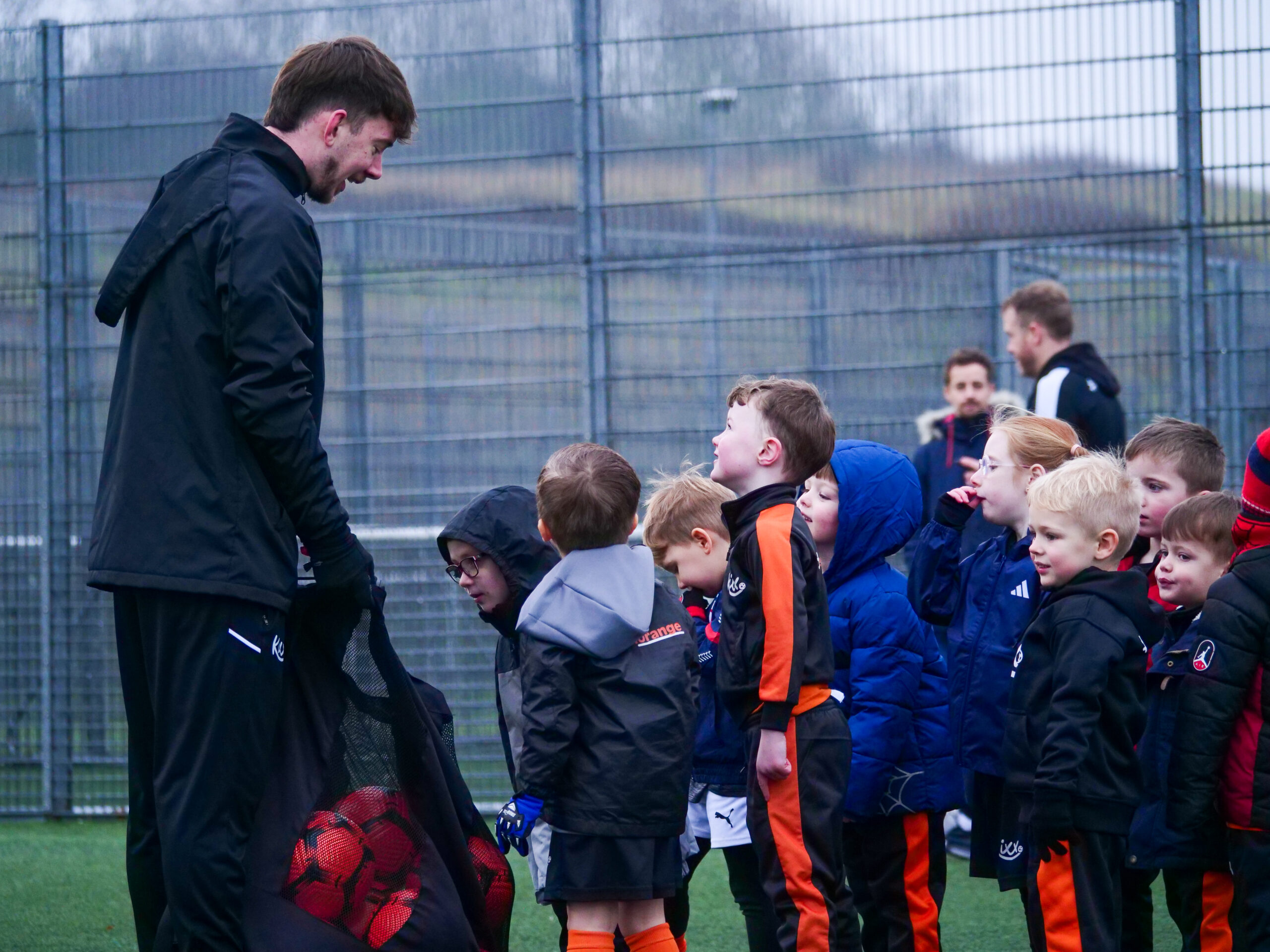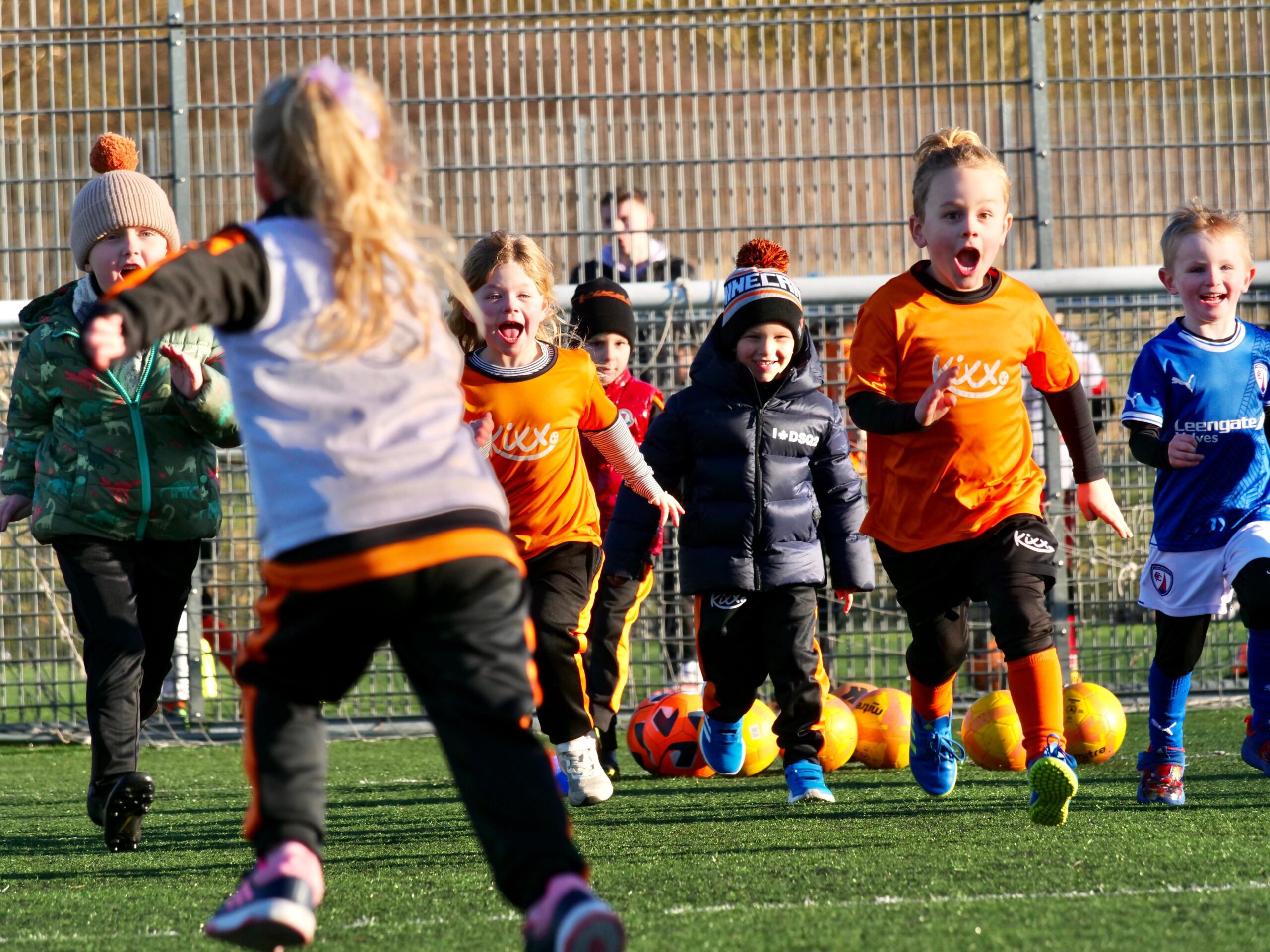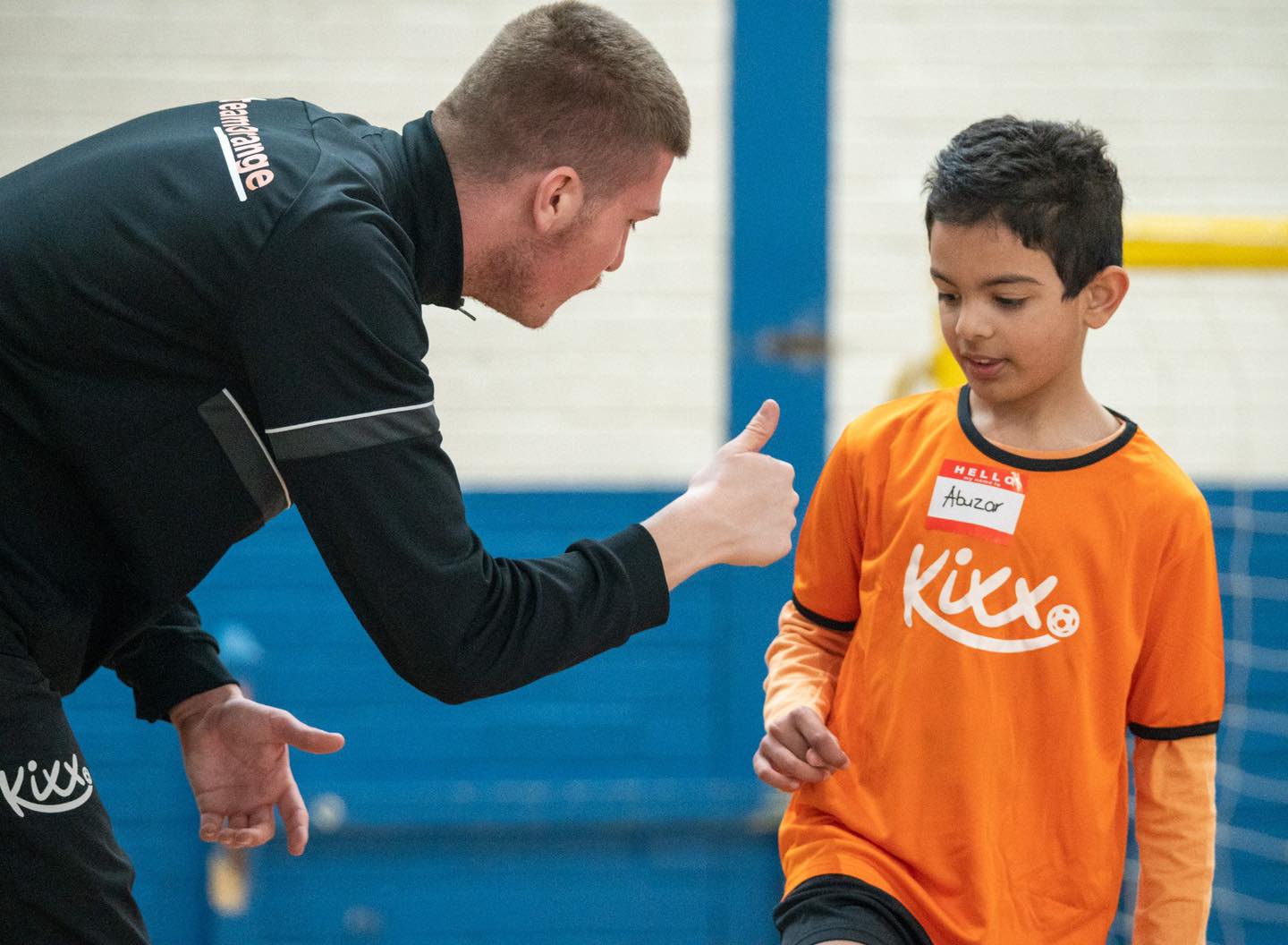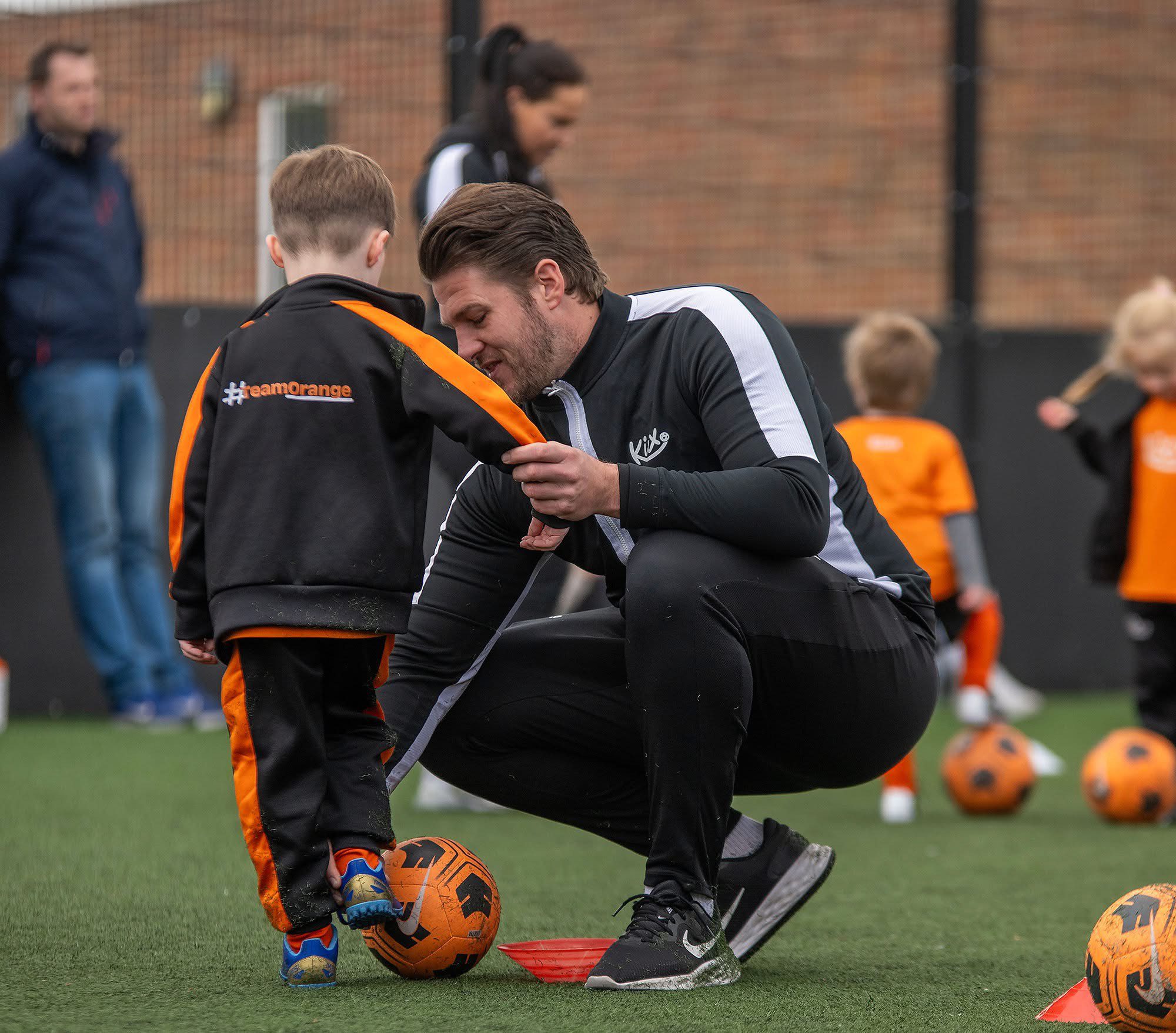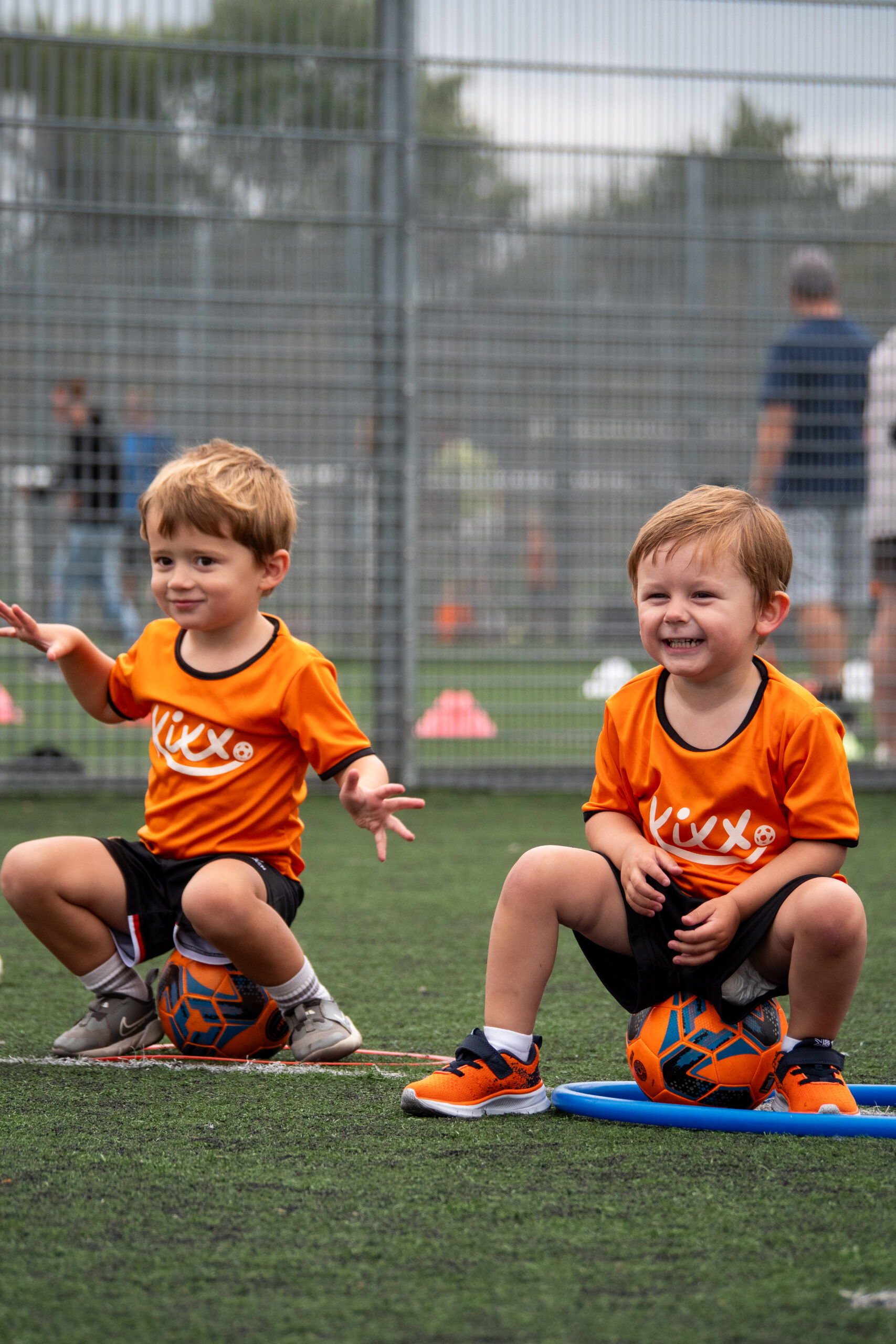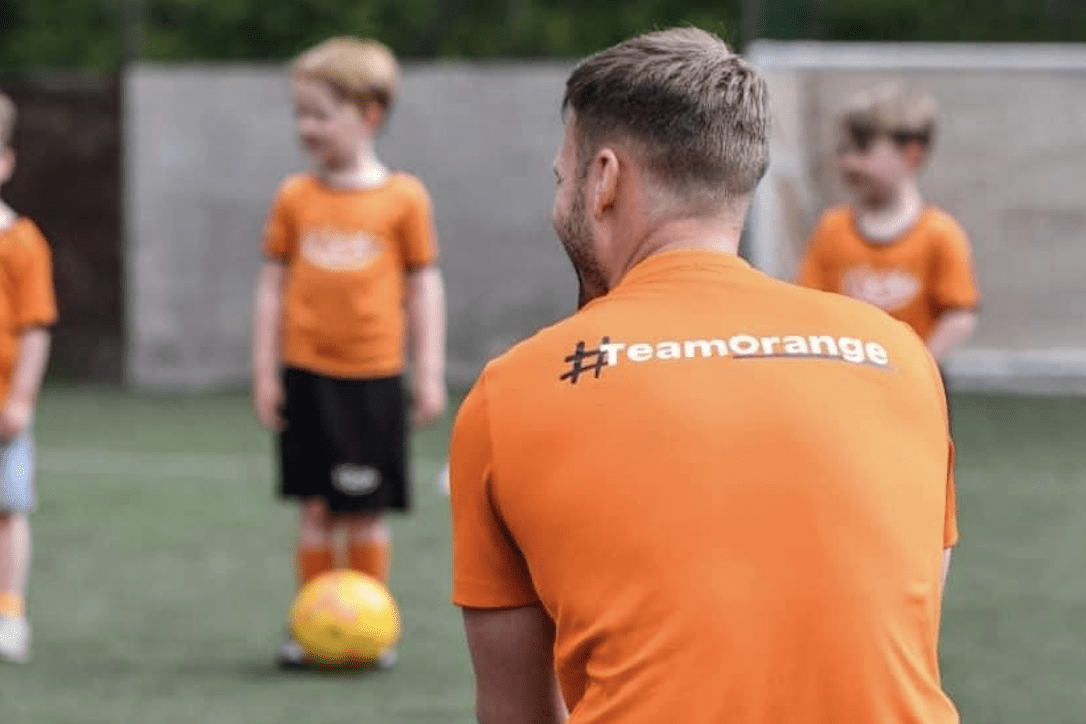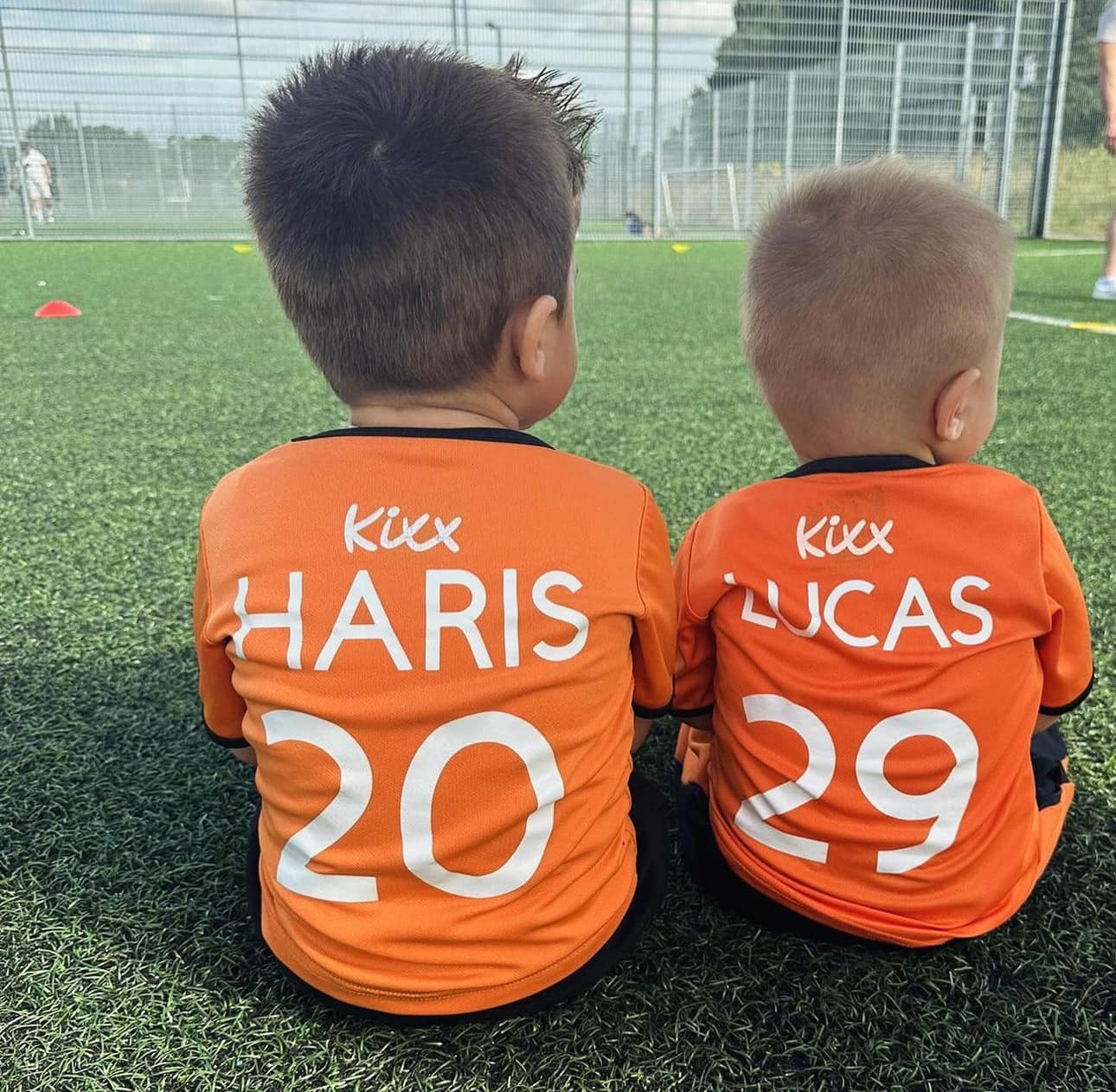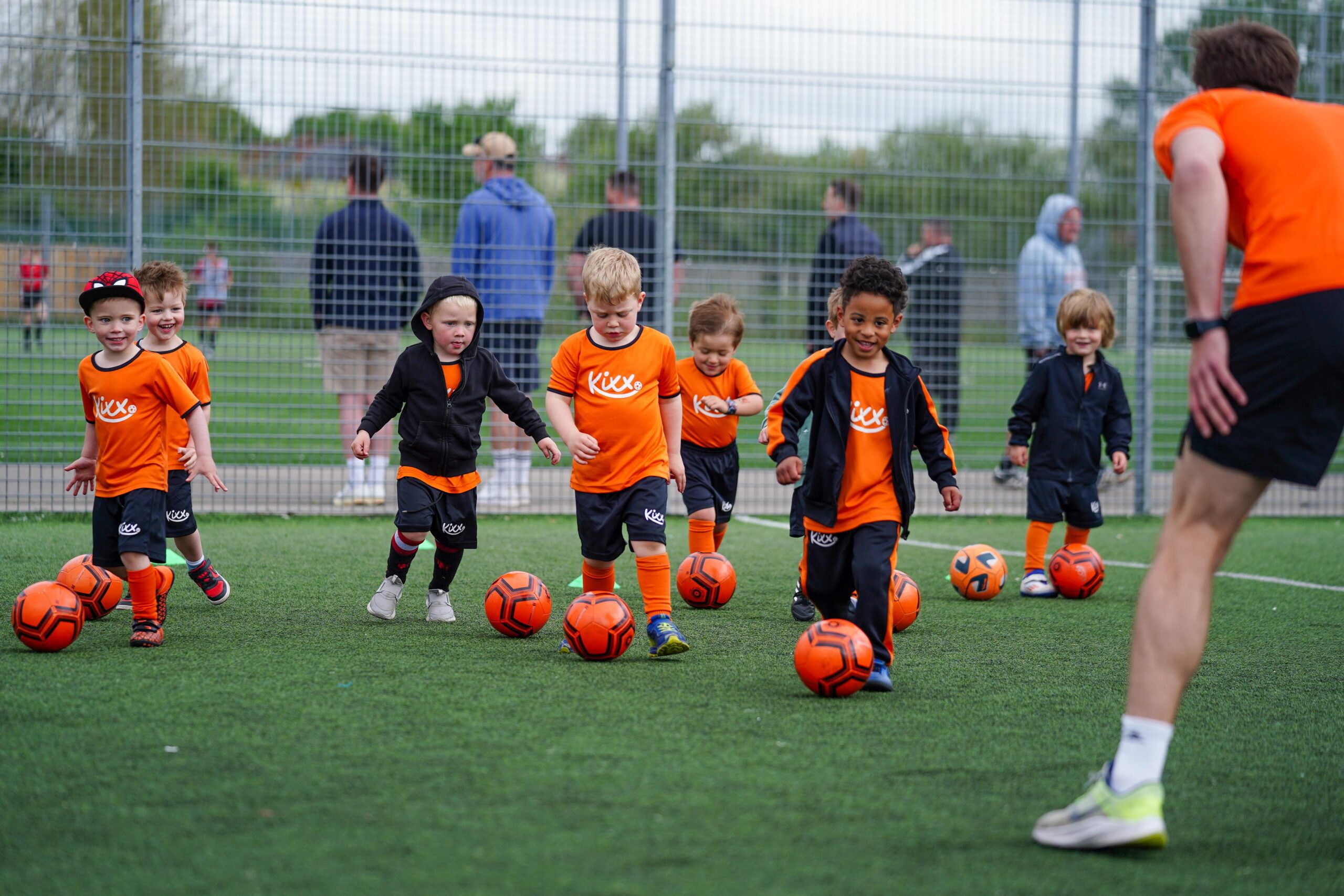Football lessons and academies have many psychological and social benefits that help children develop – even more than the physical activity itself. Researchers think this because of the social development side of being in a team and working with other children to achieve the same goal.
In this Kixx blog, we explore 3 ways football lessons help children make friends and how the social environment helps develop their skills both on and off the football pitch.
Children Making Friends Through Football Lessons
One of the most undervalued benefits of playing sport is the way in which it can result in new friendships and an increased social circle. After all, what better way is there to make friends than meeting like-minded people with whom you share an interest.
1) Building Cooperation and Team Work
No football team can function effectively without cooperation. By playing as part of a team or taking part in a football lesson, a child will learn how to operate around others.
Coaches will often talk about respect, teamwork, and patience in practices. Playing in a group will increase their social awareness and understanding of others.
At Kixx, we apply emphasis on social development and that’s built into our sessions through cooperation and team work. Children are always grouped into teams to achieve the same goal – winning.
2) Improving Communication & Leadership
Taking part in a group activity, playing in a team, or going to a weekly football lesson will require communication. A child who plays football in a safe, fun, and friendly environment like Kixx will feel more open to communicating, socialising, and interacting with their peers.
Playing fun and engaging games is an indirect way of connecting with other children, a vital social skill to have when it comes to building friendships. The children will learn and develop the need and how important communication is not just on the pitch but in life.
Without communication your team will struggle and likely lose.
Playing football could be a child’s first real exposure to the concept of leadership – this comes in the form of the Kixx coach.
Their football coach is a leader who tries to improve their ability and manage the group to be the best they possibly can. Through looking up to them, a child learns just how important the idea of leadership is, along with the value of respect and listening to others.
3) Building Friendships
One of the main outcomes of a football lesson and getting your children into football comes in the form of friendships and the connections your children will form. Joining your child to a football academy is a brilliant way for your child to meet other children who have a similar interest and thus increase their social circle.
Weekly football lessons are also an easier commitment to make for grown-ups than playing in a team and are less of an initial challenge for the child.
Kids will bond over a shared love of a sport, club, or team, be it because they are both Arsenal fans or because they both want to be the next Bukayo Saka. Because these friendships are built on the bonds of football, they are often relationships that are strong enough to last a lifetime.
Kixx: Football Academy
Our football academies are centred on positively impacting a child’s life at every opportunity. We focus on physical and social development through the enjoyment and fulfilment of the world’s most popular sport, football.
Children’s football classes are intended to be fun, creative, age-appropriate, and high in energy.
Every Football Academy at Kixx is an opportunity for your children to make friends. Our football classes for kids have been carefully designed for both; boys and girls aged 18 months to 10 years.
Located throughout the United Kingdom, find your nearest academy or get in touch with us to learn more about our children’s football. You can call us on 01302 618080 or email us at admin@kixx.org.uk
I hope we’ve you’ve understood our 3 Ways Football Lessons Help Children Make Friends. If you’d like more context, visit our Blog Page for more details, guidance, and tips.

